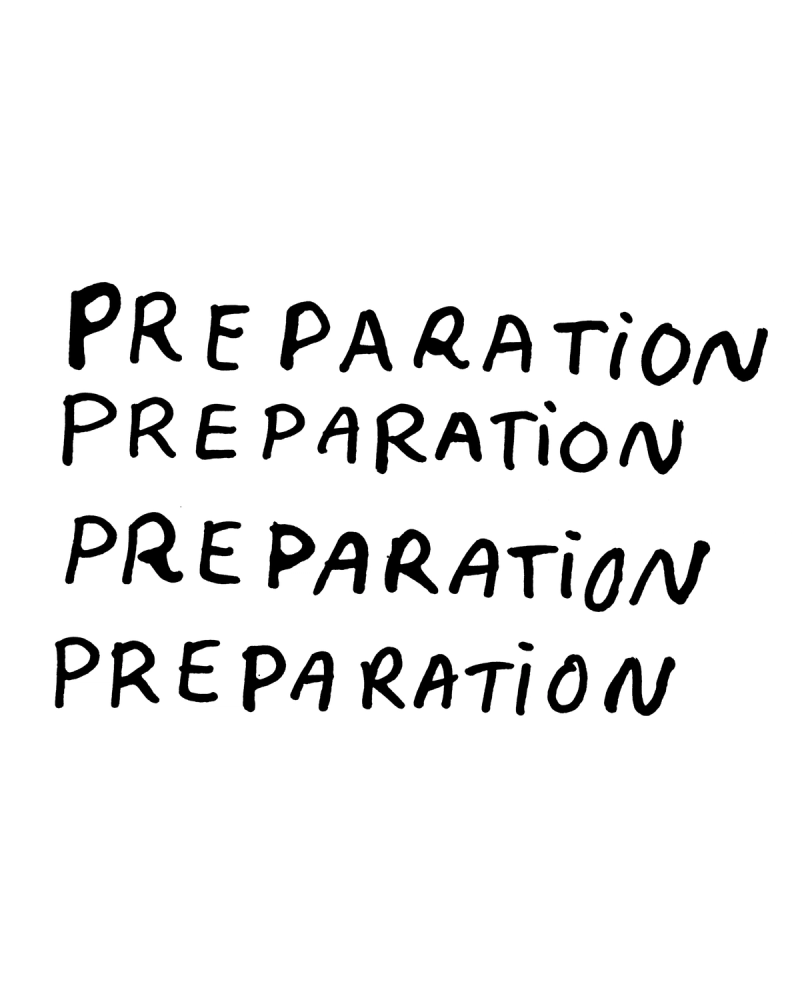We’ve been introducing brands and marketers to agencies for more than a decade, which means we know all about the challenges of finding the right team, building a relationship and making great work together.
AUFI Guides is a series of creative manuals, designed to help with whatever stage of the process you’re at – whether you’re working out the business challenge, preparing your brief, assessing an agency shortlist, or in the middle of a project.
Here, we share step-by-step advice from the AUFI network on what clients need to do before starting a new creative agency partnership.


KNOW YOURSELF FIRST
Before you think about writing a brief or browsing an agency website, get clear on the realities of the business – and the challenges it might be facing.
“Perhaps the most helpful thing a client can do before reaching out to agencies is to really look at themselves in the mirror, and be honest about where their pain points are. Think about how you can present your need to an agency in a way that’s like, ‘Hey, we have this problem and we don’t know how to solve it, what would you guys recommend?’”– Alex Tan, co-founder, Mouthwash
“Have a clear understanding of where you’re at now: the realities, and what the problems are, and then a clear vision of where you want to go. Brands need to know the metrics internally, and what needs to be moved internally, as well as the importance of where the brand is and the potential. And then be open to a partner coming in and working to diagnose and determine together.” – Kelli Robertson, co-founder, Hyphenated
A HUNCH IS SOMETIMES ENOUGH
It’s fine to approach an agency with an idea or gut feeling about what’s not working or needs to be changed – plenty of creative teams can take this and run with it.
“Lots of people say they want a really clear brief, but we get a lot of clients that don’t have any brief and our job is to unpack that through the process.” – Max Ottignon, founder, Ragged Edge
“A strong hunch of what the problem is, is better than none at all. You can come to an agency and say, ‘Hey, this thing isn’t working for us and I have three theories as to why it could be’. Having some strong suspicions that we can tease out together is better than just saying, ‘We need a rebrand’.” – Nikita Walia, founder, Blank
“One of our onboarding questions for clients is that, if we are celebrating something a year from now, what would we be celebrating? If you had a really great article written about your launch, where would it be? What would the headline be?”
Nikita Walia, founder, Blank
DREAM BIG
Understand what the big ambition is – whether it’s something purely creative or rooted in financial goals. This can help later down the line when you start having conversations with agencies.
“One of our onboarding questions for clients is that, if we are celebrating something a year from now, what would we be celebrating? If you had a really great article written about your launch, where would it be? What would the headline be? I think people in our culture sometimes feel ashamed for thinking as big as possible, but those kinds of questions can get you to your big thinking, and lofty goals, as well as how much revenue you want to drive.” – Nikita Walia, founder, Blank
UNDERSTAND THE CULTURE FIT YOU WANT
Finding the right skills match is important, but before you shortlist agencies it helps to think about less tangible questions around culture, personality and mindset.
“Having an idea of what you want from an agency is really important, but also check in on why those outputs are the ones you’re thinking of. Don’t just say, ‘Oh, I want an agency that’s worked with Nike’. That’s all well and good, and there are obviously agencies that perform in that niche, but what else? What kind of work environment do you want with these people? There’s so many other things that are more interesting than needing an agency that’s worked with x kind of brand before.” – Nikita Walia, founder, Blank
“From a mindset perspective, one of the biggest things we look for with clients – and that I think clients should also look for in agency partners – is actually how they work. There’s an agency for every brand, and you should be prepared to ask questions about how agencies work when you’re doing your interview process. Assessing how you, as a client, like to communicate is really crucial in setting your expectations for a successful client-agency relationship.” – Madison Utendahl, founder, Utendahl Creative
PREPARE THE BUSINESS CONTEXT
Agencies do their best work when they really understand the business. Lots of information, well organised, is the holy grail.
“Give us all the business data and all the sales data, all day. Creativity is in service of the business and we’re not naive to that. We want to know what pressures clients are under, so if we don’t get it, we’ll ask for it. A great client partner is transparent about the reality, because we’re solving business problems together through creativity and brand.” – Kelli Robertson, co-founder, Hyphenated
“Having a lot of information is better than having none at all, but agencies have to be a conscious consumer of that information or you get bogged down in the same patterns as somebody that’s worked at a company for 25 years." – Nikita Walia, founder, Blank
“Know where you’re at within your conversation on things like provocation and capacity for boldness. Know yourself as a client, know your aspirations within the organisation, and know the reality and your ability to achieve whatever your aspirations are.”
Kelli Robertson, co-founder, Hyphenated
STAKEHOLDERS NEED TO BE ALL-IN
Are the critical decision-makers in place, and involved in these early conversations? There’s a risk projects can go sideways if stakeholders come into the process partway through.
“Getting your ducks in a row is making sure that the business is ready to do this, and the right people are involved and in place. The biggest point of failure for us in a project is usually because someone has joined the process late on who hasn’t gone through the journey. So it’s about having that team in place, and the right stakeholders around what you’re doing.” – Max Ottignon, co-founder, Ragged Edge
“Know where you’re at within your conversation on things like provocation and capacity for boldness. Know yourself as a client, know your aspirations within the organisation, and know the reality and your ability to achieve whatever your aspirations are because of the organisational structure.” – Kelli Robertson, co-founder, Hyphenated
BE READY FOR THE MONEY CONVERSATION
Understand exactly how much you have to spend and if there’s any flex in that; agencies will appreciate an honest budget conversation, and can be upfront with what’s possible with what you’ve got.
“Know your budget. Don’t reach out to an agency and ask them to put together a proposal, if you have no understanding of how much you’re willing to spend, or haven’t done any research on how much things cost. Go out to the market and understand what your budget is, how much what you’re looking for typically costs, and then reach out to agencies.” – Madison Utendahl, founder, Utendahl Creative
“It’s important to have transparency in communication and trust, and being upfront about money early on is super important, so that we can make sure we serve you in the best way that you need, or advise you otherwise, and give you the reality of the circumstances.” – Tori Baisden, partner and Creative Director, Utendahl Creative
BE OPEN-MINDED ABOUT THE END RESULT
Get yourself in the right mindset to open up the business to outside opinions and influence – and remember that sometimes projects end up in a different place to where they started.
“A lot of people go into the process with predetermined notions or expectations for what it is they need – for example a website, or a new logo. Ask an agency what they think you need to solve a problem and be really open-minded.” – Alex Tan, co-founder, Mouthwash
“You might think the logo is the issue, but actually, I can’t load your website on my phone, so maybe we could think about that? Clients might come to us with a very different brief, and we’re like, ‘Actually, there are a few things that need to be done first before we even touch the packaging, or the colours or your social media’. The approach is holistic, or else you're simply putting on a band-aid." – Nikita Walia, founder, Blank
“It’s our job to learn as much as we can about your business reality, and make an informed decision about what the brand and marketing needs to do to help growth. In either situation, we will come in and push and provoke and challenge in a respectful way. We will always have the hard conversations because that’s how you get somewhere excellent. It’s always about the work, and it’s not personal.” – Kelli Robertson, co-founder, Hyphenated



